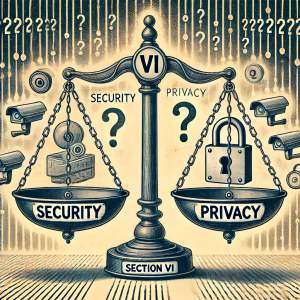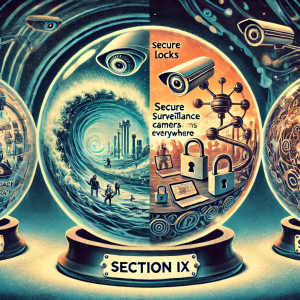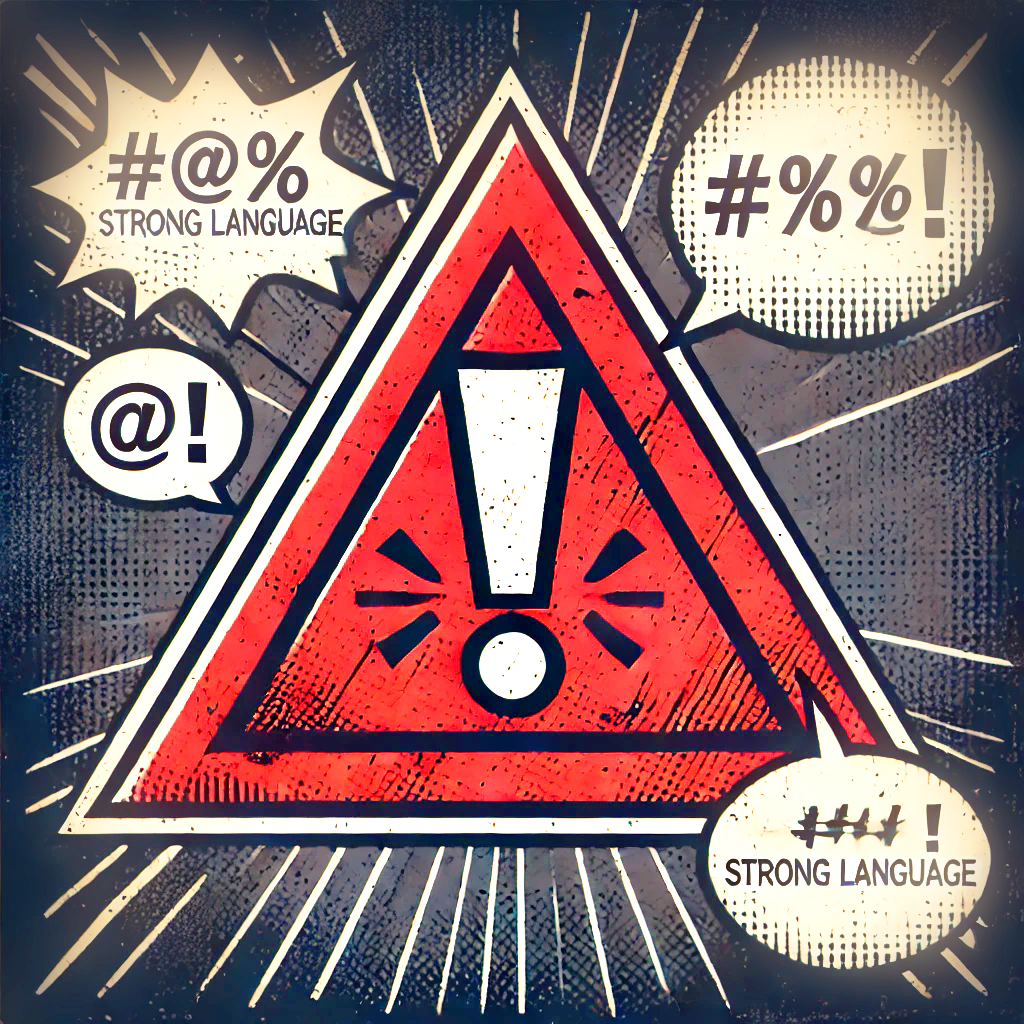Ah, privacy—remember when that actually meant something? Back in the day, keeping your life private was as simple as shutting your front door or hanging up the phone. But now, in our glorious digital age, privacy is about as secure as a screen door on a submarine. Whether it’s the endless notifications pinging at us or the creepy ads that know what we want before we do, privacy feels more like a running joke than a fundamental right.
In this brave new world, everything we do online is tracked, analyzed, and sold to the highest bidder. And while we like to pretend we still have some semblance of control, the truth is, our data is out there for the taking. But hey, at least we get targeted ads for things we don’t need, right? In this article, we’ll take a look at where privacy is heading—if it’s heading anywhere at all. Spoiler alert: it’s not looking good. So buckle up, because the future of privacy is about as comforting as finding out your internet history just went public.
Historical Context of Privacy
Alright, let’s hop into our time machine and head back to when privacy was more than just a word tossed around in legal disclaimers. Remember when closing the blinds actually meant you were keeping your business to yourself? Those were the days! Privacy was a real thing, not just a marketing gimmick. We even had laws like GDPR and CCPA show up, waving their little flags, claiming they’d protect us from the data vultures. Cute, right?
But then technology barged in, like an uninvited guest who just won’t leave, and started nibbling away at our privacy bit by bit. What began as a few innocent cookies tracking our shopping habits quickly escalated into full-blown surveillance. Every gadget, every app—suddenly, they all wanted a piece of the privacy pie. Sure, we had some “milestones” in privacy legislation, but let’s be real—those safeguards have more holes than a slice of Swiss cheese.
So here we are, in the digital age, where privacy is more of a fairy tale than a reality. We’ll probably end up telling our grandkids, “Back in my day, privacy actually existed!” as they roll their eyes and wonder why we didn’t do more to stop the privacy apocalypse. But hey, at least we can say we tried, right?
Current Challenges to Privacy
Now, let’s talk about the privacy nightmare we’re all living in. These days, your data is being collected more aggressively than a Black Friday sale at a department store. Corporations and governments are hoarding your information like it’s the last roll of toilet paper in a pandemic. They’ve got their fingers in everything—your browsing history, your shopping habits, even your late-night snack cravings. And it’s not just harmless data; it’s everything.
But wait, there’s more! Enter surveillance technologies—because why just collect data when you can watch people in real-time? Facial recognition is everywhere now, from airports to your local grocery store, making sure you’re never too far from the prying eyes of Big Brother. And don’t even get me started on IoT devices. Those “smart” gadgets? Yeah, they’re smarter than they let on. They’re listening, watching, and probably judging your taste in music.
Of course, with all this data flying around, privacy breaches are just the cherry on top. One day you’re minding your own business, and the next, your personal info is floating around the dark web like confetti at a parade. The implications for individuals? Well, let’s just say identity theft is now a booming industry. So much for privacy, huh? It’s like trying to keep a secret in a room full of gossip queens—good luck with that.

Technological Innovations and Privacy
Now, let’s dive into the tech that’s supposed to save our privacy—or at least that’s what they tell us. First up, artificial intelligence and machine learning. These bad boys can process data faster than you can say “breach,” and while they’re great for predicting your next online purchase, they’re also excellent at invading your privacy without you even noticing. It’s like having a really nosy neighbor who’s also a genius.
Then there’s blockchain, the supposed knight in shining armor for privacy. Sure, it promises anonymity and security, but let’s face it—most of us can’t even explain how it works. It’s like a lock on a door that no one knows how to open. Promising? Maybe. Confusing? Absolutely.
Finally, we’ve got the emerging privacy-focused technologies—end-to-end encryption, anyone? These tools are here to protect your data from prying eyes, but they also come with a side of paranoia. Because let’s be real, if you’re using encryption for everything, you’re probably worried about more than just someone stealing your Wi-Fi.
In the end, these innovations are a mixed bag. They’re either the heroes we’ve been waiting for or the final straw in the slow death of privacy. Only time will tell, but until then, keep your data close and your passwords closer.
Future Legislation and Regulation
Ah, the government—always swooping in with a new set of rules just when you thought it couldn’t get any worse. So, what’s on the horizon for privacy laws? Probably more of the same: more regulations, more red tape, and a lot more fine print that no one actually reads. These new privacy frameworks will likely be hailed as groundbreaking, but let’s be honest, they’ll probably just be more confusing loopholes that benefit corporations while giving us a false sense of security.
And let’s not forget public sentiment. The louder we scream about our privacy being invaded, the more likely politicians are to throw us a bone with some shiny new legislation. But don’t get too excited—these laws are often more about optics than actual protection. It’s like putting a Band-Aid on a bullet wound.
Then there’s the issue of international cooperation. In a perfect world, countries would come together to create global privacy standards that actually work. But in reality, it’s more like herding cats. Every country has its own agenda, and getting them to agree on anything is about as easy as getting a straight answer from a politician.
So, the future of privacy legislation? Expect a lot of fanfare, a lot of promises, and probably not much else. Just remember, the government is here to help—whether you like it or not.

The Ethical Dimensions of Privacy
Alright, let’s get philosophical for a hot minute. How do we balance privacy with security in a world where everyone’s watching? It’s a bit like trying to walk a tightrope while juggling flaming swords. On one side, we’ve got businesses and governments collecting our data like it’s going out of style, all in the name of “keeping us safe.” On the other side, we’ve got our so-called right to privacy, which is shrinking faster than a pair of cheap jeans in the wash.
Then there’s the whole ethical dilemma of data usage. Is it okay for companies to hoard our personal info and use it to sell us stuff we don’t need? Probably not, but they’re doing it anyway. And what about governments using our data for surveillance? Just how much privacy are we willing to sacrifice in the name of security? Spoiler alert: it’s usually more than we think.
And let’s talk about consent—because those cookie pop-ups aren’t fooling anyone. Clicking “I agree” has become the digital equivalent of signing a blank check. Are we really giving informed consent, or are we just too lazy to read the fine print? (Hint: it’s the latter.)
So, the ethical dimensions of privacy? It’s a murky mess of half-baked consent, overreach by corporations and governments, and a constant tug-of-war between security and freedom. Welcome to the digital age, where ethics are as flexible as a politician’s promises.
The Role of Individuals in Protecting Privacy
Alright, enough doom and gloom—let’s talk about what you can do to protect your privacy. Spoiler: it’s going to take more than just a good password and clearing your browser history. First off, educate yourself. Know what you’re signing up for when you click “I agree,” and maybe actually read a privacy policy once in a while (I know, I know, it’s like reading the dictionary, but trust me).
Next up, arm yourself with tools—think VPNs, encrypted messaging apps, and anything else that makes you feel like you’re one step ahead of Big Brother. Sure, it might seem paranoid, but in a world where your data is up for grabs, a little paranoia goes a long way.
And don’t forget, privacy isn’t just about you—it’s about the community. Join advocacy groups, support legislation that actually protects privacy, and call out companies that are more interested in your data than your satisfaction. It’s time to stop being passive about privacy and start fighting for it—because if we don’t, no one else will.
Future Trends in Society and Privacy
So, what does the future hold for privacy? Well, brace yourself for the rise of privacy-conscious consumers—yes, they do exist, and they’re growing in number. These are the folks who actually care about where their data goes and won’t hesitate to drop a company faster than a hot potato if they catch a whiff of shady practices. And guess what? This is forcing corporations to pretend they care about your privacy too. They’ll slap on a “privacy-first” label and hope you don’t dig too deep.
But don’t get too excited—this newfound “corporate responsibility” is often more about looking good than actually doing good. Companies will tout their privacy measures like they’re the second coming, but behind the scenes, they’re still finding ways to get their hands on your data. It’s all part of the game, folks.
And let’s not forget how privacy (or the lack thereof) is going to shape our social interactions. We’re already living in a world where oversharing is the norm, and that trend isn’t going anywhere. The lines between public and private life are blurring faster than ever, and pretty soon, the concept of “too much information” will be a distant memory. So, get ready for a future where privacy is just another checkbox on the list of things we used to have.

Potential Scenarios for Privacy in 2030
So, what’s the crystal ball say about privacy in 2030? Let’s play out a few scenarios. First up, the best-case: somehow, against all odds, we manage to strengthen privacy protections, and everyone from governments to corporations finally respects our right to keep things under wraps. Ha! Nice dream, right?
Now, the worst-case: privacy becomes a relic, and we’re all living in a digital fishbowl. Every move tracked, every thought predicted, and every conversation analyzed. Big Brother isn’t just watching—he’s taking notes.
And the most likely scenario? We’ll keep stumbling along, trying to find a balance between protecting privacy and embracing convenience. Tech companies will continue to push the limits, governments will slap on more Band-Aid regulations, and we’ll keep struggling to figure out where to draw the line. It’s going to be a wild ride, folks, so buckle up—2030 is just around the corner, and privacy is still hanging by a thread.
Thoughts at the end of this diatribe.
So, where does that leave us in the grand saga of privacy? Well, privacy isn’t dead yet, but it’s definitely on life support. We’ve seen how it’s been chipped away, bit by bit, by tech giants, governments, and our own willingness to trade convenience for security. The question now is, do we let it slip away entirely, or do we fight to keep what little we have left?
The future of privacy is in our hands—or at least in the hands of those who care enough to do something about it. Whether it’s through demanding better laws, using privacy tools, or simply being more cautious about what we share, the power isn’t entirely out of our grasp. But let’s be real—if we don’t start taking privacy seriously, we might as well kiss it goodbye.
So here’s the final takeaway: privacy is worth fighting for, even if the odds are stacked against us. It’s not just about keeping your secrets safe—it’s about maintaining control over your own life in a world that’s increasingly trying to take that control away. The fight for privacy isn’t over, but if we don’t act now, it soon will be.
The original article, quaintly titled “Privacy—A Different View,” quoted from sources that have long since vanished into the digital ether. Ah, those were simpler times, when privacy concerns revolved around nosy neighbors and the occasional misdirected letter. We’ve “updated” this piece for the modern age, where privacy is about as real as a unicorn riding a rainbow. Original Post Date: 09 SEPT 2011.

The owner has been using the name baedon glendower since his BBS days, contributing both archived and new articles. His influence has shaped the identity of BaedonWebZine in its various incarnations for over two decades.



Leave a Reply